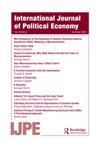Structuralism and Human Development: A Seamless Marriage? An Assessment of Poverty, Production and Environmental Challenges in CARICOM Countries
IF 1.3
Q3 ECONOMICS
引用次数: 4
Abstract
Abstract The article examines the current human development experience of CARICOM nations focusing on the interconnected challenges of poverty, production and the environment that show continuing uneven development. Using an extended structuralist framework based on international political economy dynamics, it incorporates organizational dynamics and domestic politics, especially the role of rents in influencing productive and inclusive development. In this way, the article examines the 2016 Caribbean Human Development Report (CHDR) and finds evidence that human development, proxied by expenditures on education and healthcare, has decoupled from productive capability evinced by decreasing industrial output. We concur with recent critiques of the human development paradigm (HDP) that it has ignored a productionist view of development and thus limits the scope of development policy to bring about broad production transformation. By and large, structural heterogeneity also represents a challenge in CARICOM countries. Linked to questions of development finance, we find that the CHDR’s analysis of environmental concerns offers a narrow instrumentalist view and further marginalizes a deeper understanding of CARICOM countries’ asymmetrical relationship with transnational forces in the global economy. This contribution offers an integrated approach showing continued peripheralization and helps identify structural, socio-political and technical drivers that underpin the region’s complex development challenges.结构主义与人类发展:天衣无缝的联姻?对加勒比共同体国家贫困、生产和环境挑战的评估
本文考察了加勒比共同体国家当前的人类发展经验,重点关注贫困、生产和环境等相互关联的挑战,这些挑战显示出持续的不平衡发展。它采用基于国际政治经济动态的扩展结构主义框架,将组织动态和国内政治结合起来,特别是租金在影响生产性和包容性发展方面的作用。通过这种方式,本文研究了2016年加勒比人类发展报告(CHDR),并发现了以教育和医疗保健支出为代表的人类发展与工业产出下降所证明的生产能力脱钩的证据。我们同意最近对人类发展范式(HDP)的批评,即它忽视了生产主义的发展观,从而限制了发展政策实现广泛生产变革的范围。总的说来,结构的不均匀性也是加勒比共同体国家面临的挑战。与发展融资问题联系起来,我们发现《人权报告》对环境问题的分析提供了一种狭隘的工具主义观点,并进一步边缘化了对加勒比共同体国家与全球经济中跨国力量的不对称关系的更深入理解。这一贡献提供了一种显示持续外围化的综合方法,并有助于确定支撑该地区复杂发展挑战的结构、社会政治和技术驱动因素。
本文章由计算机程序翻译,如有差异,请以英文原文为准。
求助全文
约1分钟内获得全文
求助全文

 求助内容:
求助内容: 应助结果提醒方式:
应助结果提醒方式:


